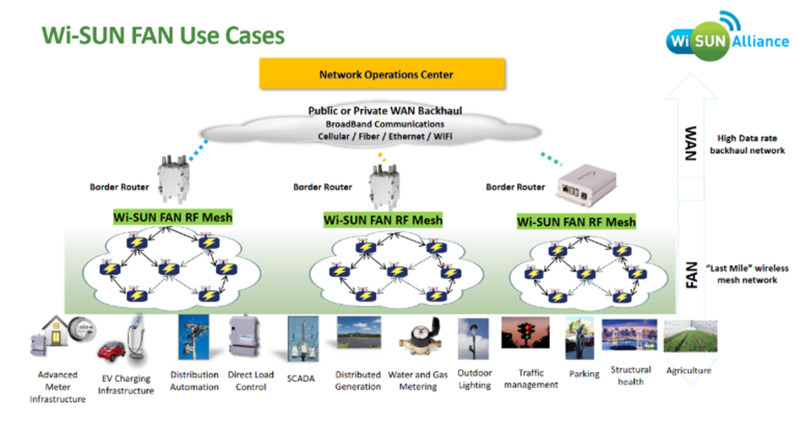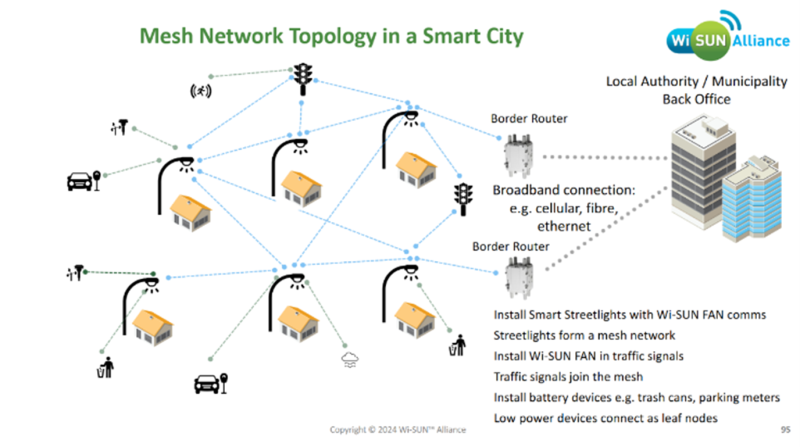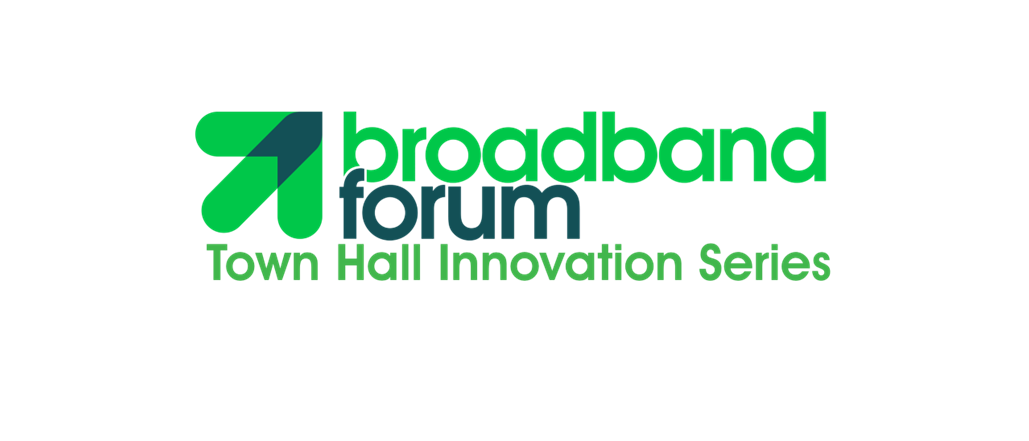 Large-scale outdoor wireless mesh networks are key for ‘last-mile’ connectivity in smart cities and the smart home as its flexible and decentralized infrastructure can navigate ranging topologies and ensure a reliable connection for IoT devices.
Large-scale outdoor wireless mesh networks are key for ‘last-mile’ connectivity in smart cities and the smart home as its flexible and decentralized infrastructure can navigate ranging topologies and ensure a reliable connection for IoT devices.
The Wi-SUN Alliance President and CEO Phil Beecher claimed that “there is not a single technology that fits all requirements on a network”. Open standards are crucial to enabling the security, interoperability, and scalability required for broadband service providers (BSPs) to manage a multi-vendor environment comprising of various IoT devices with differing functions. This includes the likes of smart meters, sensors, distributed automation, and traffic signals that can provide utilities and municipalities with essential data.

The interconnectivity of a range of IoT devices can facilitate the collection of vast amounts of data as it is routed through each device, which the BSPs can use for predictive maintenance, remote load management, and critical insights to enhance operations. This data can then be routed from the wireless mesh outdoor network to the border router and to the backhaul connection which could be either fiber, cellular, ethernet, or Wi-Fi. And with the emergence of Artificial Intelligence, this can be further enhanced, Beecher added.
However, if one of these IoT devices becomes compromised or obstructed it is vital that data continues to be routed through the network. In dense urban environments, these obstacles are commonplace. Wireless mesh networks that support a number of devices – such as Wi-SUN’s Field Area Network (FAN) – are often adopted for last-mile connectivity as they can navigate potential connectivity problems. Its self-forming and self-healing nature, allows the network to reroute connectivity ensuring resilience and maintaining consistent connectivity, even in interference-heavy environments.

The diverse and evolving demands of smart city operations require the implementation of heterogeneous broadband networking solutions for effective connectivity of various IoT devices. To achieve this, the adoption of standardized protocols and practices is essential. By establishing common frameworks, operators can build resilient and efficient IoT networks that enhance functionality and drive innovation. Embracing these standards will not only lead to cost-effective solutions but also ensure the seamless integration of devices, ultimately transforming urban environments into smart, connected ecosystems.
